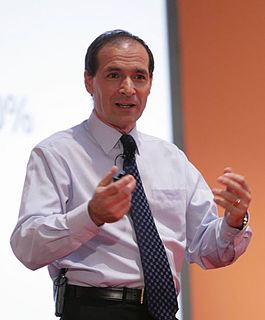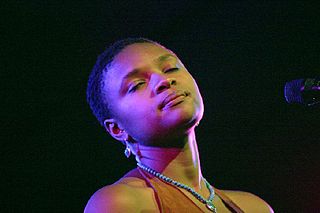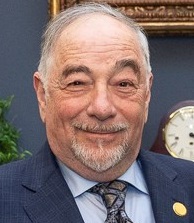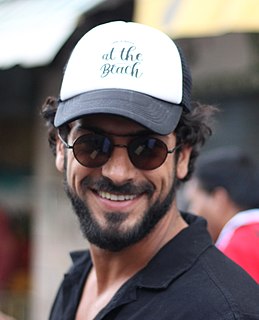A Quote by Patrick Dixon
When you have been close to death it makes you think about life.
Related Quotes
There is to me about this place a smell of rot, the smell of rot that ripe fruit makes. Nowhere, ever, have the hideous mechanics of birth and copulation and death -those monstrous upheavals of life that the Greeks call miasma, defilement- been so brutal or been painted up to look so pretty; have so many people put so much faith in lies and mutability and death death death.
I had nothing to do with death panels. I thought it was a horrible phrase about end of life. I didn't think it was accurate, and I was - I've always been opposed to it. The reason why I stood behind that phrase "death tax" for so many years is because the only time that you could pay that tax, the only time, is on the death of a relative. And that's what makes it a death tax. You have to be accurate.
The first thing I would like to tell you about death is that there is no bigger lie than death. And yet, death appears to be true. It not only appears to be true but also seems like the cardinal truth of life - it appears as if the whole of life is surrounded by death. Whether we forget about it, or become oblivious to it, everywhere death remains close to us. Death is even closer to us than our own shadow.
Normally we do not like to think about death. We would rather think about life. Why reflect on death? When you start preparing for death you soon realize that you must look into your life now... and come to face the truth of your self. Death is like a mirror in which the true meaning of life is reflected.
There have been only two taboos in the world: sex and death. It is very strange why sex and death have been the two taboos not to be talked about, to be avoided. They are deeply connected. Sex represents life because all life arises out of sex, and death represents the end. And both have been taboo - don't talk about sex and don't talk about death.
Laughter. Yes, laughter is the Zen attitude towards death and towards life too, because life and death are not separate. Whatsoever is your attitude towards life will be your attitude towards death, because death comes as the ultimate flowering of life. Life exists for death. Life exists through death. Without death there will be no life at all. Death is not the end but the culmination, the crescendo. Death is not the enemy it is the friend. It makes life possible.
When a significant other - a spouse, a parent or someone you're close to - is dying, it forces you to think about your life, about what you feel about death. What I realized from my dad's dying was that I wasn't scared of dying. But I was terrified of regrets. I was terrified of getting to the end of my life with a lot of Why didn't I's.
We are left with nothing but death, the irreducible fact of our own mortality. Death after a long illness we can accept with resignation. Even accidental death we can ascribe to fate. But for a man to die of no apparent cause, for a man to die simply because he is a man, brings us so close to the invisible boundary between life and death that we no longer know which side we are on. Life becomes death, and it is as if this death has owned this life all along. Death without warning. Which is to say: life stops. And it can stop at any moment.
By 'coming to terms with life' I mean: the reality of death has become a definite part of my life; my life has, so to speak, been extended by death, by my looking death in the eye and accepting it, by accepting destruction as part of life and no longer wasting my energies on fear of death or the refusal to acknowledge its inevitability. It sounds paradoxical: by excluding death from our life we cannot live a full life, and by admitting death into our life we enlarge and enrich it.
What makes people want to live forever? I don't think it's limited to our materialistic society of today. Even back to Christian times, they were writing about eternal life after death. So even in death there was a discussion of eternal life. I think this is a universal human desire. It's a horrible thought that this conscious being of ours - with our beautiful bodies - is one day going to decay and die. I don't think it so much has to do with the fear of meeting God, as it is just the thought that this all ends.
I don't think anything surprised me. It was very hard for me, this story, The Snack, as a father. I have family in the army in Israel, I know families that lose their children, and I think this is the most hard thing, is faith. Because what happens after death is always belief, it's always something that you don't have any answers about, and I think the movie helps you to understand that death is part of the life. It makes it more natural.
I was in Korea. I've noticed all my life I see elderly people who have been close to death in an illness and they're absolutely cured and they say, now I know how to live my life. I've seen death. That happened to me when I was 19. It was a terrible, terrifying thing. And I live my life like those people decided to do when they were old. So, since I was 19, I've had the most fun possible every single day, even when I had a rough life. It was the army which taught me about life, and the theater which taught me how good it could be.
































